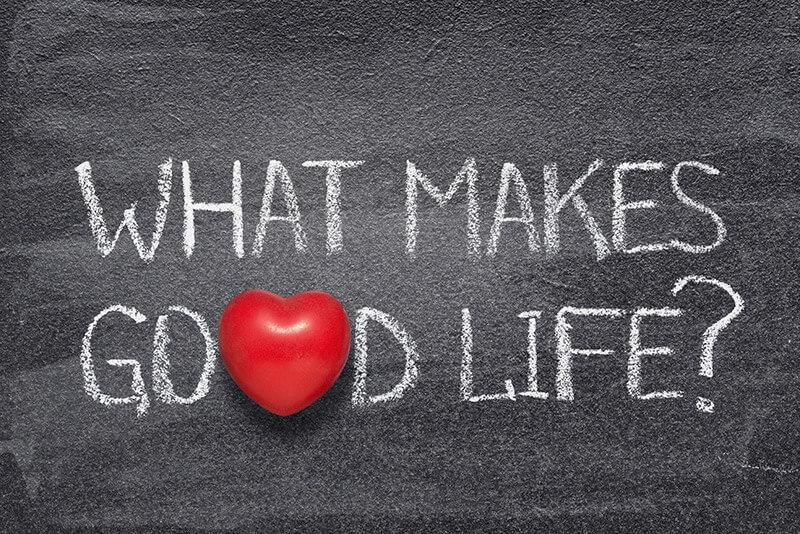
Have you ever wondered about the meaning of the term, “your soul”…
• Is it a mystical essence that animates our lives?
• Or is it the energy and passion that we pour into our creative endeavors?
• Perhaps it’s the emotional and intellectual center of our being, the source of our feelings, desires, and affections?
Around planet earth there are 34 thousand Christian denominations, four thousand religions, and 34 million churches. It is not my intention to proclaim which one is the greatest, or has ultimate authority, as that role is filled by God (what I will refer to as the Holy Trinity). So for now, the purpose of this discussion, will use the Christian faith as a basis to begin this discussion, and look at what visitors might benefit from considering, we move forward.
In the United States there is a growing number of individuals (between 20-29% dependent on if agnostic or atheist is combined in the total) who don’t align with any organized religion, and when responding to surveys, religious affiliation questions, select none of the above (the last choice) are referred to as the “nones.”
I would like to explore the evidence within history and science and look at scripture for clues to gain a deeper understanding for those who still feel called to learn more, teach their children, and be an engaged part within Christianity.
In scripture, the concept of the soul is rich and deeply meaningful. In the Old Testament, the Hebrew word “nepes” is used, while in the New Testament, the Greek word “psyche” appears—each reflecting the essence of life and the depth of our spiritual being.
As we explore this profound topic together, I encourage us to approach it with reverence and reflection, always mindful of the two greatest commandments that Jesus gave us:
- “You shall love the Lord, your God, with all your heart, with all your soul, and with all your mind. This is the greatest and first commandment.”
- “You shall love your neighbor as yourself. The whole law and the prophets depend on these two commandments.”
These commandments remind us that love—both for God and for one another—is at the core of faith. When I teach in person, I often emphasize that while we can pray for others, guide them, and encourage them in faith, ultimately, each person must choose their own path. We can inspire and uplift, but we cannot force understanding or acceptance.
Faith is an invitation, not an obligation. As we journey together, may we continue to seek wisdom, nurture our own souls, and extend grace to those who are still finding their way
In a group setting, it’s great to establish some “house-keeping rules” and boundaries. Here’s a few to get you started:
• We are all sinners, yet we are called to “evangelize” others, hopefully in our actions, or acts of love
• Never mention a person by name or job/community title, “Judge not lest thee be judged”
Other general examples are:
**Practice active listening:** Allow everyone to speak without interruptions and listen to understand rather than respond.
**Respect differences: ** Embrace diverse opinions and perspectives without criticism or judgment.
**Maintain confidentiality: ** What is shared in the group stays in the group, creating a safe space for honesty and vulnerability.
**Focus on solutions, not blame: ** Encourage discussions that aim to address challenges constructively rather than assigning faults.
**Be mindful of time: ** Share the floor with others and keep contributions concise to ensure everyone has a chance to participate.
**Assume positive intent: ** Approach conversations with an open heart, giving others the benefit of the doubt in their words and actions.
Jesus Christ
The Root of the New Testament and Christianity
as seen through the lens of a Roman Catholic
Over the last 30 years, working with a multitude of families and people of all ages across the nation, requests have come in related to the need for a simple tool to explore facets of the Catholic Faith.
As a certified catechist for the last 35 years, working with families, I have developed an overview of our faith that is aligned with sacred scripture, the CCC, and local parish or Diocesan procedures. We offer personalized classes in sacramental prep for youth that fit your schedule designed to help families who are the primary catechist (CCC: 2221-2226) of their children. Teens looking to prepare for confirmation with their sponsor can set their instruction around the family’s schedule. We offer virtual instruction, with an outcome’s measurement tool outlined within the Confirmation Candidate/Sponsor Discussion Journal.
Moving, after 40 years in Arizona, briefly to Virginia, and back to New York in 2016 where I grew up, the discussions still mirrored the same topic, through people of different ages and walks of life.
The challenge is in the different parts that make up a complete faith system, such as belief in Jesus, trust in God’s plan, and adherence to religious teachings. The last being the most difficult for some souls to achieve. I like to use sports, or fine arts as an example of how “practice perfects” what we try and accomplish, or a “rinse and repeat” as it relates to the three Year Liturgical Cycle. If and when we recognize, we are all sinners (on many levels), the need to Reconcile (sacrament) or tell Jesus we are sorry, and “try again” the charity and love we are called to have for each other makes a peaceful, and just community. When we are ready, we can begin to learn what steps it takes to improve our relationships.
Relationships through the eyes of children can be very honest! My favorite age group to work with are elementary students (pre-k to 6th grade) as they are open to asking challenging questions that parents (the primary catechist of the family) struggle to explain. That’s where we can help, we offer instruction and examples related to what you and your family wants to explore. Last year, in a local Family Faith Formation group, I had second and third graders, that taught me a way to imagine eternity through their eyes. They inspired me to create a Purposeful Concepts Family Faith Guide© that brought hundreds of lesson plans into an outline. The outline, based off of three Liturgical Cycles (A,B,C year X 3) for a total of nine steps (they didn’t like the “by grade” outline) of “foundational concepts” of what to better understand within their Catholic faith.
Over the last three years, working with students in the second through fifth grade, I reviewed my notes from what they contributed to how they would like an outline to be structured.
We are happy to present the Purposeful Concepts Family Faith Guide © Our gift to you for 2025, and information on the Jubilee Year!
“We must fan the flame of hope that has been given us and help everyone to gain new strength and certainty by looking to the future with an open spirit, a trusting heart and far-sighted vision. The forthcoming Jubilee can contribute greatly to restoring a climate of hope and trust as a prelude to the renewal and rebirth that we so urgently desire…” (Pope Francis)
As learning styles are as unique as the age of everyone, the kids over the last few years, suggested these “steps outline” to better understanding their faith (although we kept the traditional grade level sequence for some parents). I agreed with their suggestions as it aligns with how one might live their life using scripture and faith as a guide, rather than societal norms.
I have been blessed to have had countless interactions with people of all ages and walks of life. One of my most recent encounters stood out as an example of what everyday conversation could offer to our troubled world. This boy was actively engaged in the classroom discussion, where we were learning about every word we pray within the Lord’s Prayer (the Our Father). We were praying with the intention of what we could do to try and make the world a better place and give hope to others. I asked the class (second and third grade) how they would explain this prayer and why we want to get to heaven; perhaps to a friend that didn’t know about God, as we say, “thy will be done, on earth as it is in heaven.”
The class had lots of suggestions, but this young man said, “heaven is a place where nothing goes wrong.” What a wonderful moment to imagine, this type of place, along with the hope for families raising children in the world we find ourselves in.
God the Father, Jesus His Son, and the Holy Spirit, known as the Holy Trinity are there to greet us as we welcome them into our heart.
Peace be with you!
We create custom educational tools for the steps outlined in our guide, or on you request. Check out our Education and Wellness Resources and Membership information to learn more.
Tell ME About YOU!
What Defines
“Multi-Generational”
For the first time in history, there are five generations in the workplace. They are:
- Traditionalists – born 1925 to 1945
- Baby Boomers – born 1946 to 1964
- Generation X – born 1965 to 1980
- Millennials – born 1981 to 2000
- Generation Z – born 2001 to 2020
- Generation Alpha – born 2020 the first born entirely in the 21st century
Each generation bring a variety of skillsets and experience that can lead to innovative concepts encompassing solutions for organizations, living arrangements, and family structures. Realtors now face the challenge of finding dwellings that accommodate multiple generations.
From business perspectives to families understanding core values, work ethic, communication preferences, feedback preferences, as well as stereotypes provides useful insight moving forward.

What Defines a Good Life?
When we look at findings to develop a comprehensive view in the fundamentals of living a good life a big part of thriving involves accepting yourself as you are. Imperfect but responsible and capable to do better, working towards goals, and getting along with others.
Transformation can be considered “tough work” to accomplish since it allows awareness in the current state of three elements that include:
- physical or body; where we need to determine our personal “self-destructive” behaviors before we can specifically identify where and how to disengage.
- emotional and/or soul; do we experience “emotional poverty”
- cognitive or mind; what are the mind-body interactions
Become committed to “intentional living,” with goals you are looking to achieve, that help you “shine” as examples for others to follow.
To be aware of an action, from any point in time, does not define WHO you are, it is just the beginning of the realization of where you can focus on the facts to improve or begin your journey.

